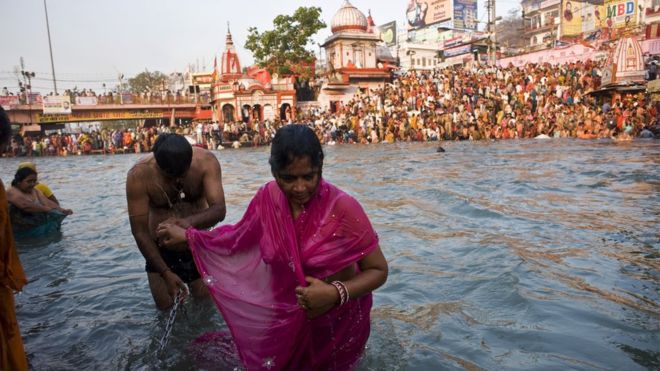India’s revered Ganges and Yamuna rivers cannot be viewed as living entities, the Supreme Court has ruled.
It overruled an order made in March by the High Court in Uttarakhand state, which said that the two rivers had the same legal status as human beings.The move was seen as a measure to increase protection for the rivers, which are deeply venerated in India but are heavily polluted.
But Uttarakhand’s state government took the issue to the Supreme Court.
It argued that the declaration was legally unsustainable.
The river Ganges – worshipped in Hinduism as “Ganga Mata” or mother – is a lifeline to more than 500 million people across India. It and its tributary the Yamuna are two of the country’s major rivers.
BBC South Asia Editor Jill McGivering says they are central to Indian life and much celebrated in Indian culture, even worshipped as deities.
But both are heavily polluted by industrial waste, by sewage and even by the remains of the many bodies cremated on their banks.
There are laws to stop pollution but critics say they are inadequate and poorly enforced.
So the landmark judgement in March to give the rivers the same legal status as people was an attempt to improve all this.
The argument was that it made actions to pollute or damage the rivers legally comparable to assault or even murder.
The declaration attracted a lot of publicity. But the state government of Uttarakhand, where the Ganges originates, argued that the ruling simply was not practical and could lead to complicated legal situations, even claims against the rivers in cases of flooding or drowning.
They took those objections to the Supreme Court, which agreed and has now overturned the earlier ruling.
However, correspondent says the key question remains unanswered – how best to clean up two of India’s most important rivers and keep them clean. – BBC




